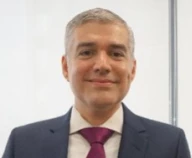 |
| Image courtesy of Caitfoto through a Creative Commons license |
Following the very successful earlier engagements of a Khmer palm reader and a celebrity turtle-shell fortune teller, the Thailand economic team has recently hired the forecasting star of the moment to divine the future of the economy. I am not talking about Professor Nouriel “Dr. Doom” Roubini, but Octopus Paul, who had to escape Germany in a hurry to avoid becoming “pulpo a la Gallega”. For a hefty fee of a five shrimps, the wise cephalopod spent a few hours in our offices sharing his prognosis for the Thai economy.
The octopus-oracle started by noting that unlike him, the Thai economy seemed to use just one tentacle—exports—to propel it forward. “Who has been buying ever more of what the Thai economy makes?” he asked rhetorically. “Foreigners. It’s the foreign purchases of hard disk drives, air conditioners and cars that keep the economy swimming at a nice pace. The other tentacles of the economy—agriculture, construction, retail trade and other services that depend on Thai purchases—have been sluggish. This has been true not only during this recovery but since the early 2000s.”
I had to agree: manufacturing and logistics—sectors that depend primarily on exports for their growth—have boomed in the 2000s; other sectors, which are more closely linked to Thai domestic demand have not done as well. As a result, by 2009 Thailand’s services sectors had shrunk compared to the rest of the economy compared to ten years earlier. Even China—Asia’s undisputed manufacturing powerhouse—saw services increase (modestly) as a share of GDP over the same period.
Typing on his waterproof laptop with one tentacle, Paul showed me an interesting statistic that he said offered a clue to the reason for the one-legged swimming. Despite the robust real growth in manufacturing since 2000 (an average of 6.4 percent per year) the fraction of workers in that sector is still about the same as ten years ago, approximately 14 percent. Increased automation and worker productivity supported higher output, but did not contribute to integrating more Thais into the dynamic and higher value-added globalized sectors. “If I only swim with one tentacle, the other tentacles will atrophy,” he philosophized.
The metaphorical mollusk concluded by saying that if I wanted to know what would happen to the Thai economy in 2010 and 2011, I had to look at economic prospects of the foreigners that so enjoyed buying Thai goods.
Unfortunately, Paul’s soothsaying contract only covered Thailand, and so he could not answer pressing questions such as how much East Asian demand might compensate for slow growth in advanced economies, and whether the fiscal crisis in Europe would lead to a ‘double dip’ world recession. Exports to East Asia grew at a breakneck pace during the recovery, but it is unclear how much of this growth was due to one-off restocking of inventories of goods (or parts) that would eventually end up in advanced economies. On Greece, Paul did point out that the probability of a debt restructuring had to be quite high since the price of Greek bonds suggests the market expects to be repaid only 60 to 70 cents for every euro. He grumbled that debt restructurings are rarely orderly and collegial events (he seemed bitter, having owned Argentinean government debt in the early 2000s).
“What about the impact of the political crisis?” I asked him. Paul said that the good thing of swimming well with one tentacle was that if someone hurt one of the sleepy tentacles the economy would continue swimming at about the same speed. “Short of another big external shock, the Thai economy should do fine this year. With as much certainty as I predicted Spain would win the World Cup, I predict the Thai economy will grow by 6.1 percent in 2010,” he said prophetically.
But Paul warned that it would be misleading to think that the high GDP growth in 2010 meant the political crisis had no impact—he pointed again at the figure that only 14 percent of the workforce was in the fast-growing manufacturing sector (with another 3 percent in logistics). “The political crisis hurt the tourism sector, which accounts for about 8 percent of the workforce, and makes those sectors that depend the most on the confidence Thai consumers and investors (retail sales, construction, agriculture, where most Thais work) even more sluggish. The tentacle injured by the crisis may not have been propelling the economy overall, but it was a big tentacle with many suction cups.”
“So what should Thailand do to be less vulnerable to external shocks and maintain its impressive growth record?” I asked. The awesome octopod replied that first of all one should not cut the strong and nimble tentacle. “The economy would surely sink,” he said. “What is needed is some physiotherapy on the other tentacles. Specifically, Thailand needs to create more high paying jobs that integrate a greater number of workers into dynamic, globalized and high-value-added sectors, including higher value-added manufacturing, financial services, medical tourism and creative sectors such as architecture and advertising. To do that, Thailand needs improvements in education, more trade with its regional neighbors, and allowing more competition in the services sectors, including through greater participation by foreigners.” (Paul had obviously been reading the new World Bank report on Investing Across Borders.)
I was ready to accept all of Paul’s macro-economic prophecies, but was skeptical of his malaco-economic imagery of swimming and tentacles. I thanked him for his insights, but said I preferred the notion that Thailand’s economy was running on one engine, and that it needed to find a second engine to complement the first. Paul shrugged and propelled himself (using all eight tentacles) to his next appointment. Somehow I suspect Paul actually agreed with me…


Join the Conversation